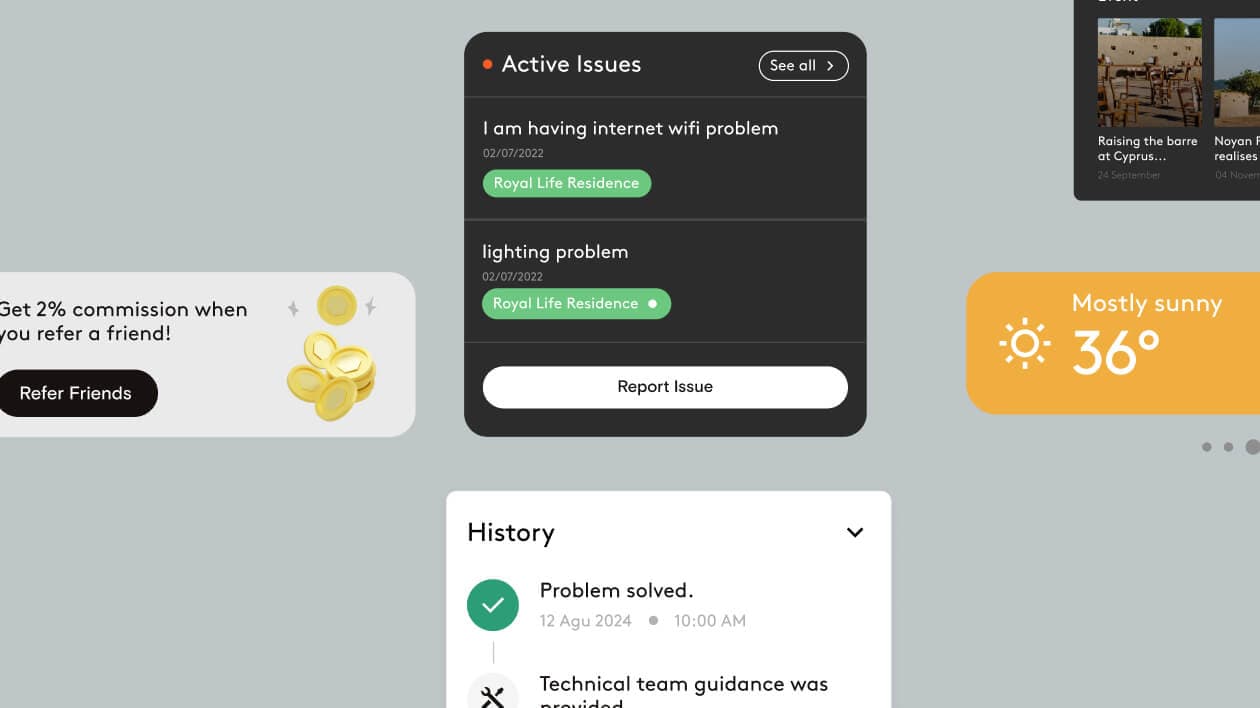Magento
Magento is an open-source e-commerce platform that gives you complete control over your online store. It's highly customizable and scalable, making it a great choice for businesses of all sizes. We can help you build a beautiful and functional Magento store that meets your specific needs.
Understanding Your Business
We begin by deeply understanding your business goals, target audience, and unique selling propositions. This allows us to tailor a Magento solution that perfectly aligns with your vision and drives tangible results.
Strategic Planning
Our team collaborates with you to develop a comprehensive strategy for your Magento project. We outline the project scope, timelines, budget, and key milestones to ensure a smooth and efficient development process.
Custom Magento Development
We leverage our expertise in Magento development to build a customized and robust online store that meets your specific needs. We focus on creating a user-friendly, high-performing, and visually appealing platform.
Seamless Integration
We integrate your Magento store with essential third-party tools and services, such as payment gateways, shipping carriers, and marketing platforms, to streamline your operations and enhance your customer experience.
Testing and Optimization
We conduct rigorous testing to ensure the functionality, performance, and security of your Magento store. We also optimize your store for speed, SEO, and mobile responsiveness.
Ongoing Support and Maintenance
We provide ongoing support and maintenance to ensure your Magento store runs smoothly and efficiently. We are always available to address any issues or implement new features as needed.
Design
We craft meaningful digital experiences that captivate and engage, blending creativity with strategy. From concept to execution, we make your brand stand out.
We shape distinctive brands that resonate, ensuring every element reflects your business’s core values.
Our branding process builds emotional connections, making your brand memorable and positioning it for long-term success in the market.
Magento is highly customizable, allowing you to tailor your store to your specific needs and brand. You can customize your store by: * **Adding a theme:** Themes control the look and feel of your store. You can choose from a variety of free and paid themes. * **Installing extensions:** Extensions add new features to your store. You can choose from a variety of free and paid extensions. * **Editing code:** If you're comfortable with coding, you can edit the Magento code to make more advanced customizations. * **Using a page builder:** Some Magento extensions offer page builders, which allow you to create custom pages without coding. * **Hiring a developer:** If you need help customizing your store, you can hire a Magento developer.
Magento is built with SEO in mind, making it easy to optimize your store for search engines. You can improve your Magento store's SEO by: * **Using SEO-friendly URLs:** Magento automatically generates SEO-friendly URLs, but you can customize them further. * **Optimizing product pages:** Make sure your product pages include relevant keywords and descriptions. * **Creating sitemaps:** Sitemaps help search engines crawl your store and index your pages. * **Building backlinks:** Get other websites to link to your store. * **Using a SEO plugin:** There are many SEO plugins available for Magento that can help you optimize your store.
Magento offers a variety of marketing tools to help you promote your store. You can use these tools to: * **Create email campaigns:** Send out email newsletters and promotional emails to your customers. * **Run social media campaigns:** Integrate your Magento store with social media platforms. * **Offer coupons and discounts:** Create coupons and discounts to attract new customers. * **Run Google AdWords campaigns:** Advertise your store on Google. * **Use affiliate marketing:** Partner with other businesses to promote your store.
The best Magento version for your business depends on your specific needs and budget. If you're a small business on a tight budget, Magento Open Source may be a good option. If you're a larger business that needs more advanced features and support, Magento Commerce may be a better choice. Here are some factors to consider when choosing a Magento version: * **Your budget:** Magento Open Source is free to use, while Magento Commerce has a monthly subscription fee. * **Your business size:** Magento Open Source is a good option for small businesses, while Magento Commerce is a better choice for larger businesses. * **Your technical expertise:** Magento Open Source is easier to use than Magento Commerce, but both versions require some technical knowledge. * **Your specific needs:** Magento Commerce offers more features and support than Magento Open Source, so it's a better choice if you need more advanced features. Ultimately, the best way to choose the right Magento version is to contact a Magento expert and discuss your specific needs.
Getting started with Magento is easy. First, you need to choose a Magento version. Once you've chosen a version, you can download it from the Magento website. You'll also need to choose a hosting provider and set up your store. Here are some steps to get started with Magento: 1. **Choose a Magento version:** Decide whether you want to use Magento Open Source or Magento Commerce. 2. **Download Magento:** Download the Magento version you've chosen from the Magento website. 3. **Choose a hosting provider:** Select a hosting provider that meets your needs. 4. **Set up your store:** Install Magento on your hosting provider's server and configure your store. 5. **Add products:** Start adding products to your store. 6. **Set up your payment gateway:** Choose a payment gateway and integrate it with your store. 7. **Customize your store:** Add a theme, extensions, and other customizations to make your store unique. 8. **Launch your store:** Once you're happy with your store, launch it and start selling.
There are many ways to get support for Magento. You can: * **Join the Magento community:** The Magento community is a great resource for support and information. * **Contact Magento support:** Magento offers paid support for Magento Commerce users. * **Hire a Magento developer:** If you need help with more complex issues, you can hire a Magento developer.
Magento is a highly secure platform, but it's important to take steps to keep your store secure. You can do this by: * **Keeping your Magento software up to date:** Magento regularly releases security updates, so it's important to keep your software up to date. * **Using strong passwords:** Use strong passwords for your Magento admin account and other accounts. * **Enabling two-factor authentication:** Two-factor authentication adds an extra layer of security to your accounts. * **Installing a security plugin:** There are many security plugins available for Magento that can help you protect your store.
Magento makes it easy to manage orders. You can view all orders, process orders, track order status, and issue refunds from the Magento admin panel. You can also use the Magento admin panel to manage inventory, shipping, and payments.
The cost of using Magento depends on the version you choose. Magento Open Source is free to use, while Magento Commerce has a monthly subscription fee. The cost of Magento Commerce varies depending on your revenue and the features you need. In addition to the subscription fee, you may also incur costs for: * **Hosting:** You'll need to choose a hosting provider to host your Magento store. * **Themes and extensions:** You can purchase themes and extensions to customize your store and add new features. * **Development:** If you need help setting up and customizing your Magento store, you may need to hire a developer.
There are many popular Magento extensions available. Some of the most popular extensions include: * **Mageworx SEO Suite:** A suite of tools to help you optimize your store for search engines. * **Amasty Shopby:** A tool to help you create filterable product categories. * **Yotpo:** A tool to help you collect and display customer reviews. * **Mailchimp for Magento:** A tool to help you integrate your Magento store with Mailchimp. * **Klarna:** A tool to help you offer Klarna payments to your customers.
There are many popular Magento themes available. Some of the most popular themes include: * **Porto:** A responsive and multipurpose theme. * **Ultimo:** A modern and clean theme. * **Electronics:** A theme designed for electronics stores. * **Fashion:** A theme designed for fashion stores. * **Furniture:** A theme designed for furniture stores.
There are many resources available for learning more about Magento. You can: * **Visit the Magento website:** The Magento website offers a wealth of information about the platform, including documentation, tutorials, and community forums. * **Read Magento blogs and articles:** There are many blogs and articles written about Magento that can provide valuable insights. * **Join the Magento community:** The Magento community is a great resource for support and information. * **Take a Magento course:** There are many online courses available that can teach you how to use Magento. * **Hire a Magento developer:** If you need help with more complex issues, you can hire a Magento developer.
When choosing a Magento hosting provider, it's important to consider the following factors: * **Performance:** Choose a provider that offers high performance and uptime. * **Security:** Choose a provider that offers robust security measures. * **Scalability:** Choose a provider that can scale with your business as it grows. * **Customer support:** Choose a provider that offers excellent customer support. * **Price:** Compare prices from different providers to find the best value for your money.
When choosing a Magento theme, it's important to consider the following factors: * **Your brand:** Choose a theme that aligns with your brand identity. * **Your industry:** Choose a theme that's designed for your industry. * **Your website's purpose:** Choose a theme that's designed for the purpose of your website. * **Your budget:** Themes can range in price from free to thousands of dollars. * **Your technical expertise:** Some themes are easier to customize than others. * **Customer reviews:** Read customer reviews to see what others have to say about the theme.
Managing a Magento store requires time and effort. Here are some tips for managing your store: * **Keep your store updated:** Regularly update your Magento software and extensions to ensure security and performance. * **Monitor your store's performance:** Track your store's traffic, sales, and other metrics to identify areas for improvement. * **Provide excellent customer service:** Respond to customer inquiries promptly and professionally. * **Market your store:** Use marketing tools to promote your store and attract new customers. * **Stay up-to-date with industry trends:** Keep up with the latest trends in e-commerce to stay ahead of the competition.
Migrating from another platform to Magento can be a complex process. It's important to plan carefully and hire a developer if necessary. Here are some tips for migrating from another platform to Magento: * **Back up your data:** Back up your data from your old platform before you start the migration process. * **Choose a Magento version:** Decide whether you want to use Magento Open Source or Magento Commerce. * **Choose a hosting provider:** Select a hosting provider that meets your needs. * **Migrate your data:** Migrate your data from your old platform to your new Magento store. * **Test your store:** Thoroughly test your store to make sure everything is working properly. * **Launch your store:** Once you're happy with your store, launch it and start selling.
There are many benefits to using Magento, including: * **Customization:** Magento is highly customizable, allowing you to tailor your store to your specific needs and brand. * **Scalability:** Magento can handle large amounts of traffic and data, making it a good choice for businesses that are growing rapidly. * **Security:** Magento is a highly secure platform, protecting your customer data from hackers and other threats. * **SEO-friendliness:** Magento is built with SEO in mind, making it easy to optimize your store for search engines. * **Community support:** Magento has a large and active community of developers and users, providing ample support and resources.
There are two main versions of Magento: Magento Open Source and Magento Commerce. Magento Open Source is a free and open-source version of the platform, while Magento Commerce is a paid version that offers additional features and support. Magento Open Source is a good choice for small businesses or those on a tight budget, while Magento Commerce is a better option for larger businesses or those who need more advanced features.
Magento is a powerful open-source e-commerce platform that allows you to build and manage your online store. It's highly customizable and scalable, making it a great choice for businesses of all sizes. Magento offers a wide range of features, including product management, order processing, payment processing, and marketing tools. It's also a highly secure platform, ensuring that your customer data is protected.
Magento Open Source is a free and open-source version of the platform, while Magento Commerce is a paid version that offers additional features and support. Magento Open Source is a good choice for small businesses or those on a tight budget, while Magento Commerce is a better option for larger businesses or those who need more advanced features. Here's a table summarizing the key differences: | Feature | Magento Open Source | Magento Commerce | |---|---|---| | Price | Free | Paid | | Features | Basic features | Advanced features | | Support | Community support | Dedicated support | | Scalability | Scalable | Highly scalable | | Security | Secure | Highly secure | | SEO | SEO-friendly | Highly SEO-friendly | | Customization | Customizable | Highly customizable | Ultimately, the best version of Magento for you will depend on your specific needs and budget.

















